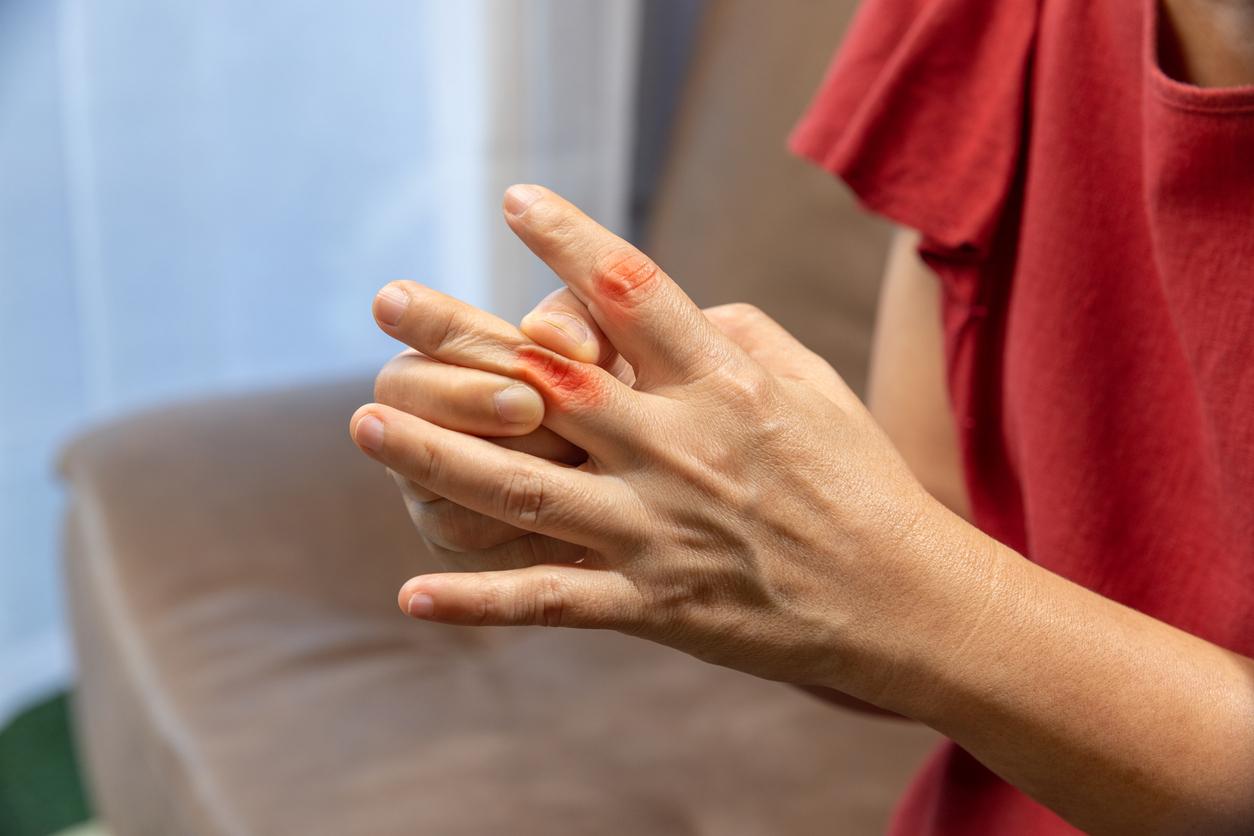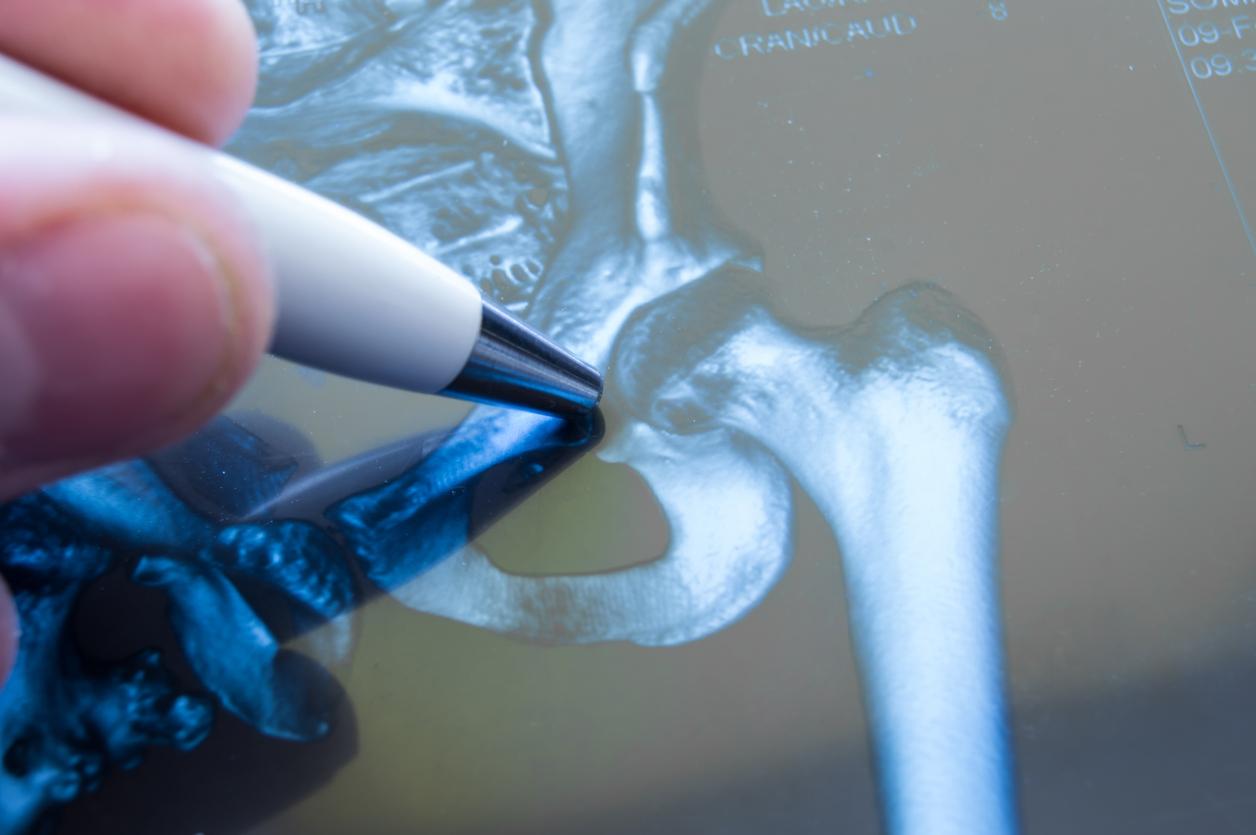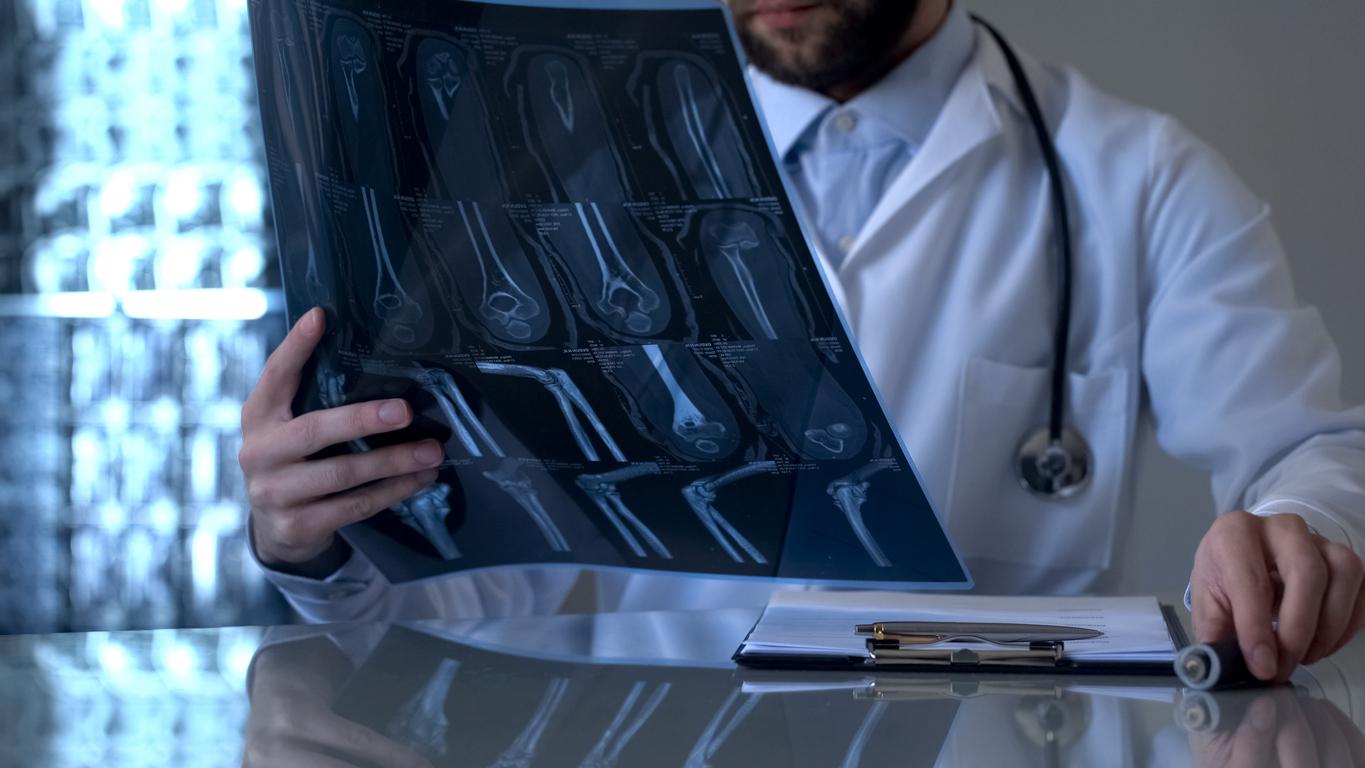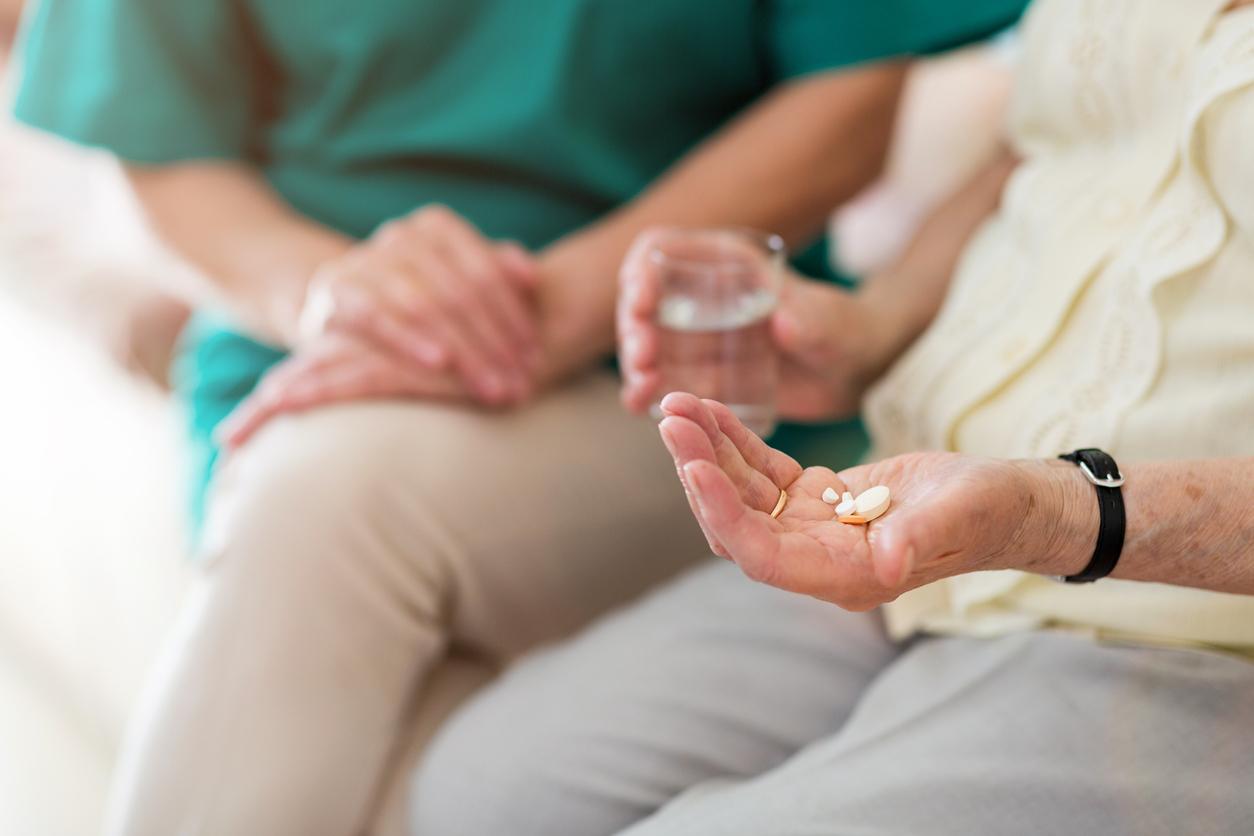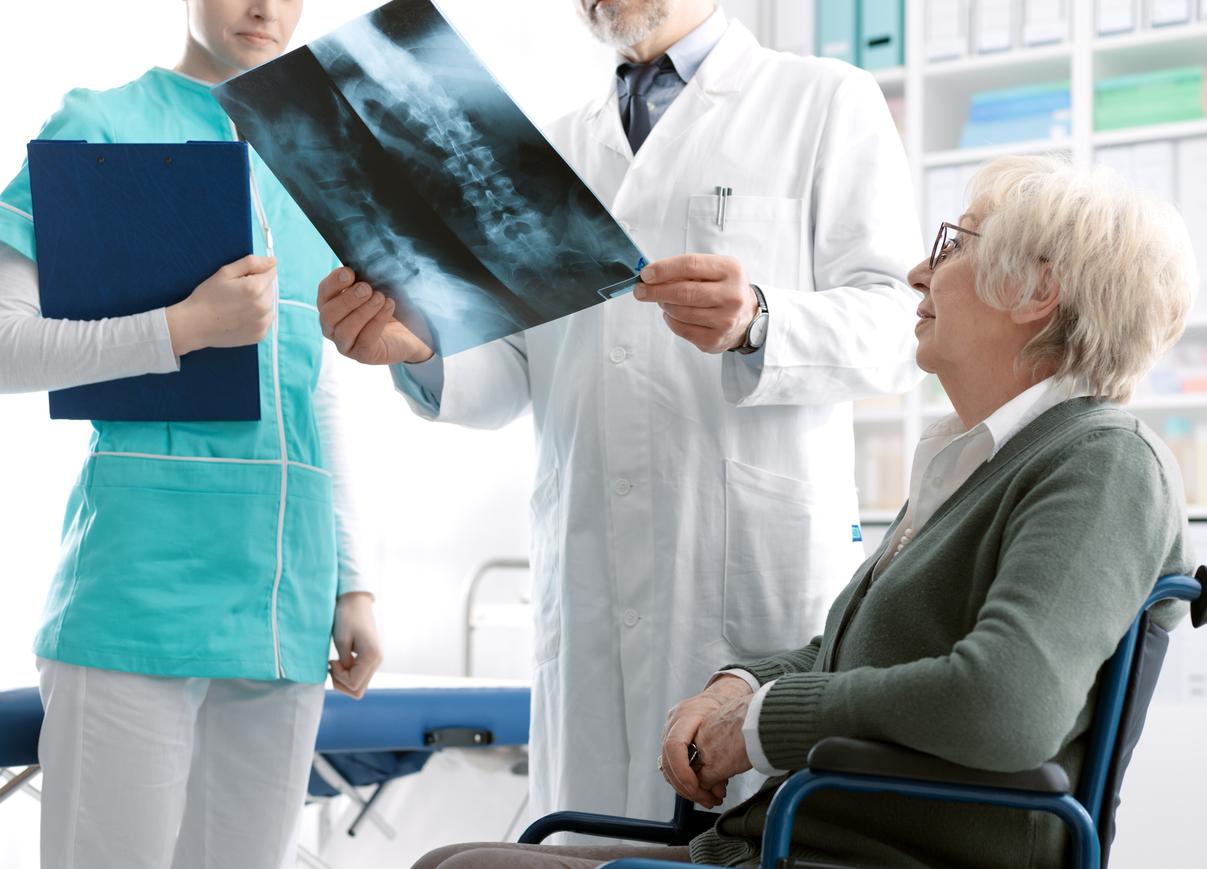Triclosan is a chemical agent with antifungal and antibacterial properties, notably present in certain hygiene products such as toothpaste, soaps or even deodorants.
Already singled out for numerous adverse health effects (triclosan would aggravate antibiotic resistance, disrupt the growth of the male fetus during pregnancy, upset the balance of the intestinal microbiota, or even increase the risk of developing liver cancer), triclosan would also promote bone fragility, according to a new study conducted by researchers from the Hangzhou Medical College School of Public Health (in China).
Bone fractures and osteoporosis
The researchers, who worked with a group of 1,848 American participants over the age of 20, for 5 years, found that women who had abnormally high levels of triclosan in their urine were more likely than others to experience bone fractures. They were also more likely to develop osteoporosis during their lifetime.
39% of French women aged 65 and over are affected by osteoporosis, a skeletal disease characterized by bone fragility and frequent fractures. This pathology is also the cause of 400,000 fractures each year in France, mainly at the level of the hip, vertebrae and wrist.
These works have been published in the Journal of Clinical Endocrinology & Metabolism.
Read also :
Osteoporosis: nearly 30% of men affected before the age of 50
Osteoporosis: some yoga poses are risky
Prolia, a dangerous osteoporosis drug?










